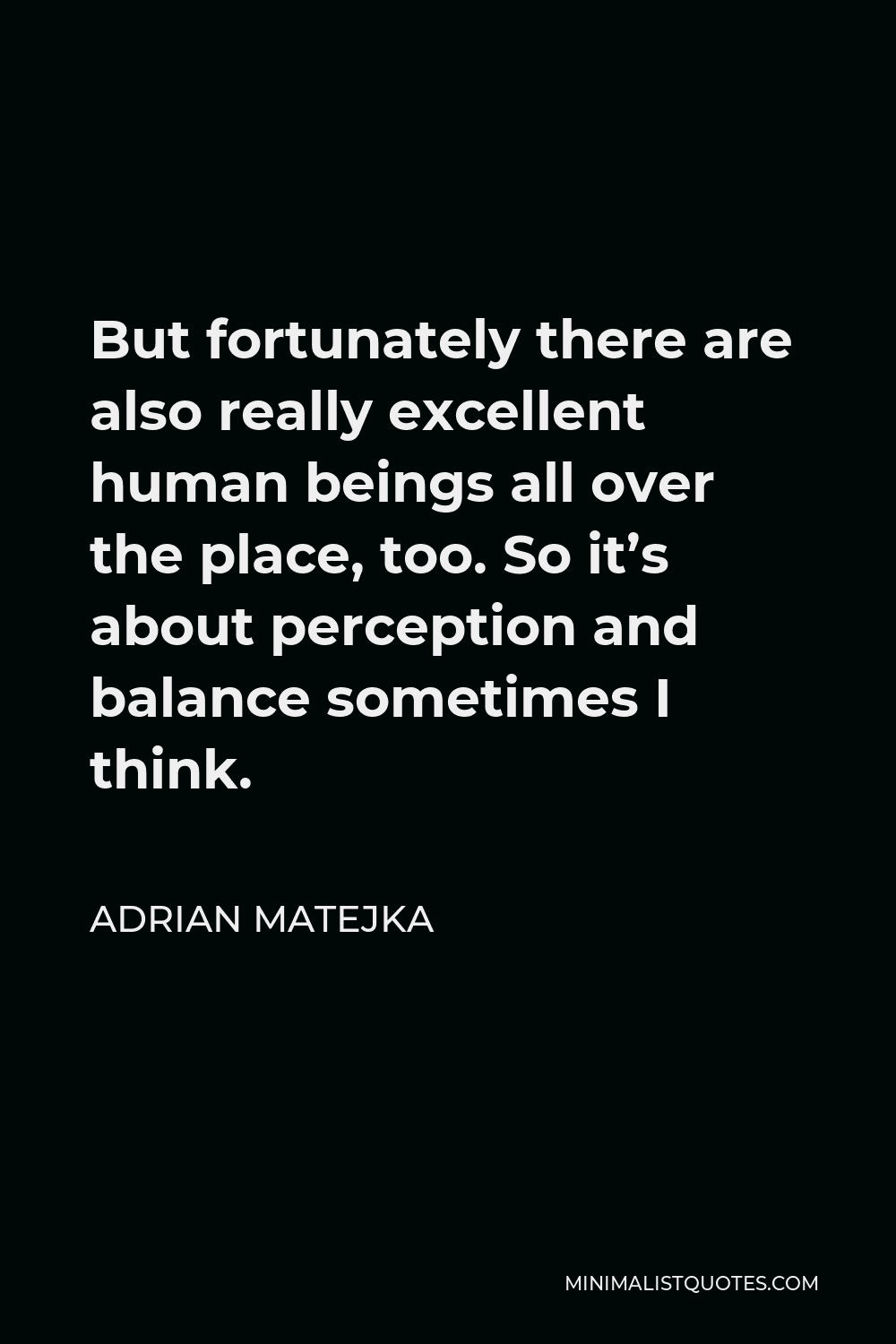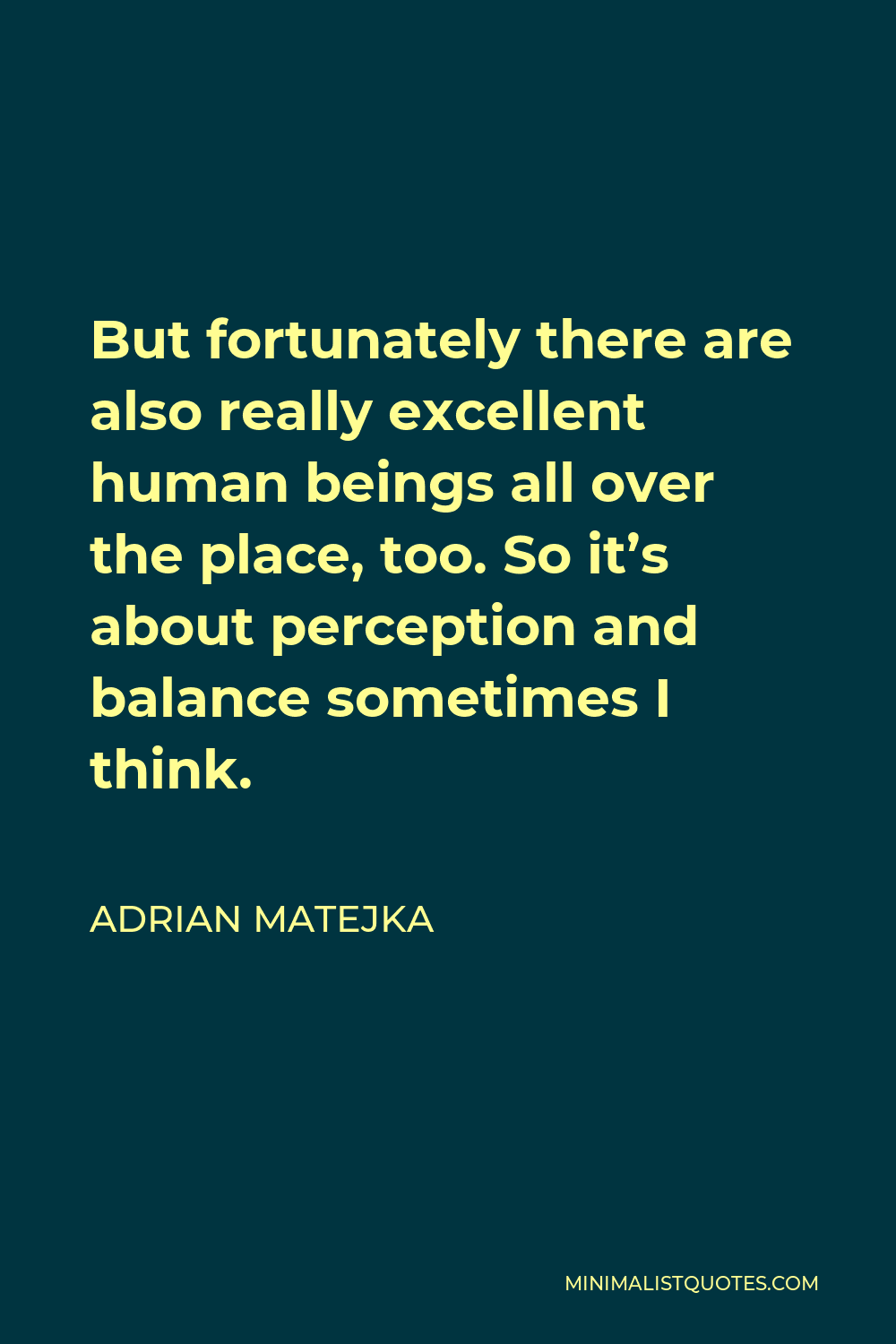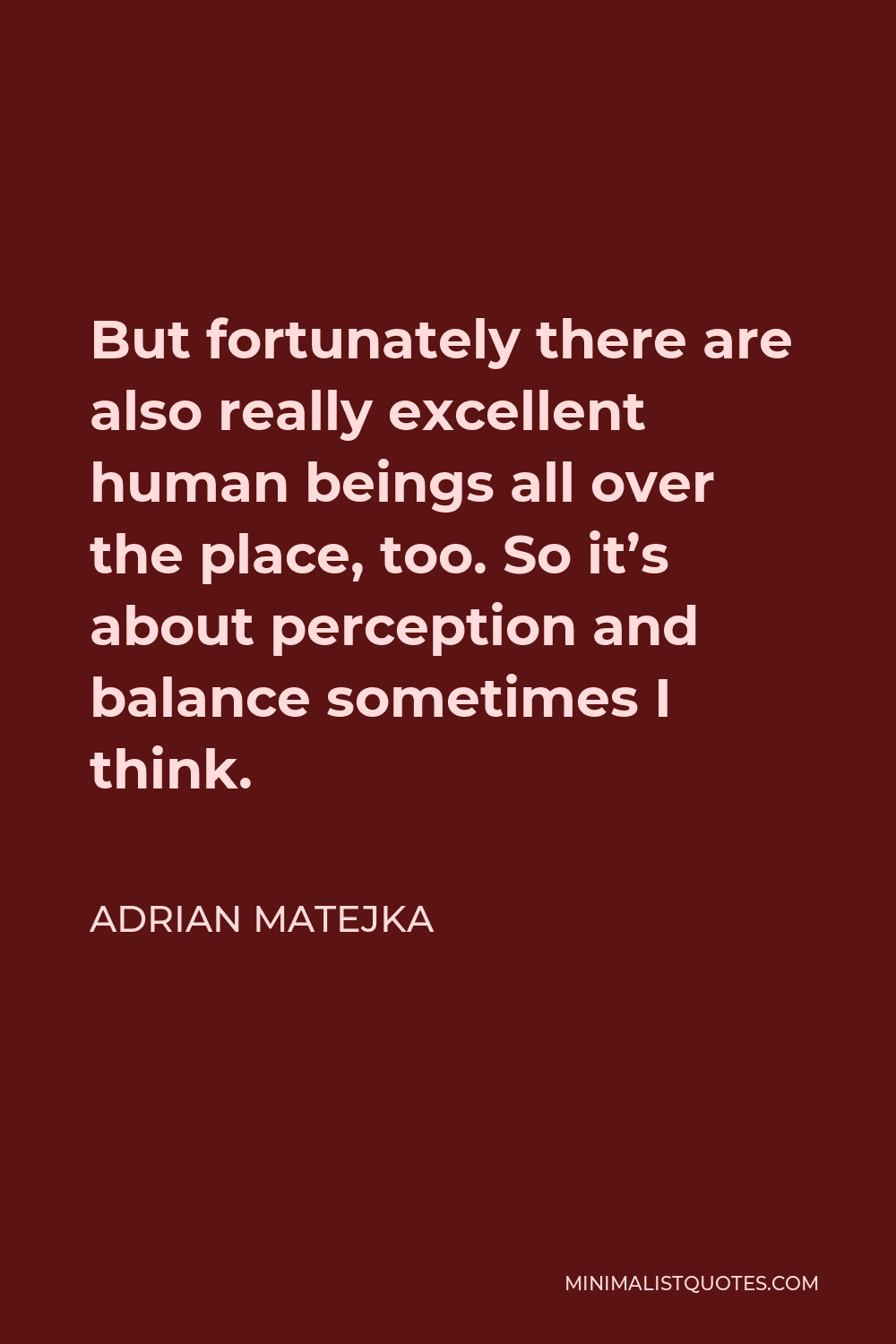I mean getting people to think about what language actually means before they use it is a good thing.
ADRIAN MATEJKABut fortunately there are also really excellent human beings all over the place, too. So it’s about perception and balance sometimes I think.
More Adrian Matejka Quotes
-





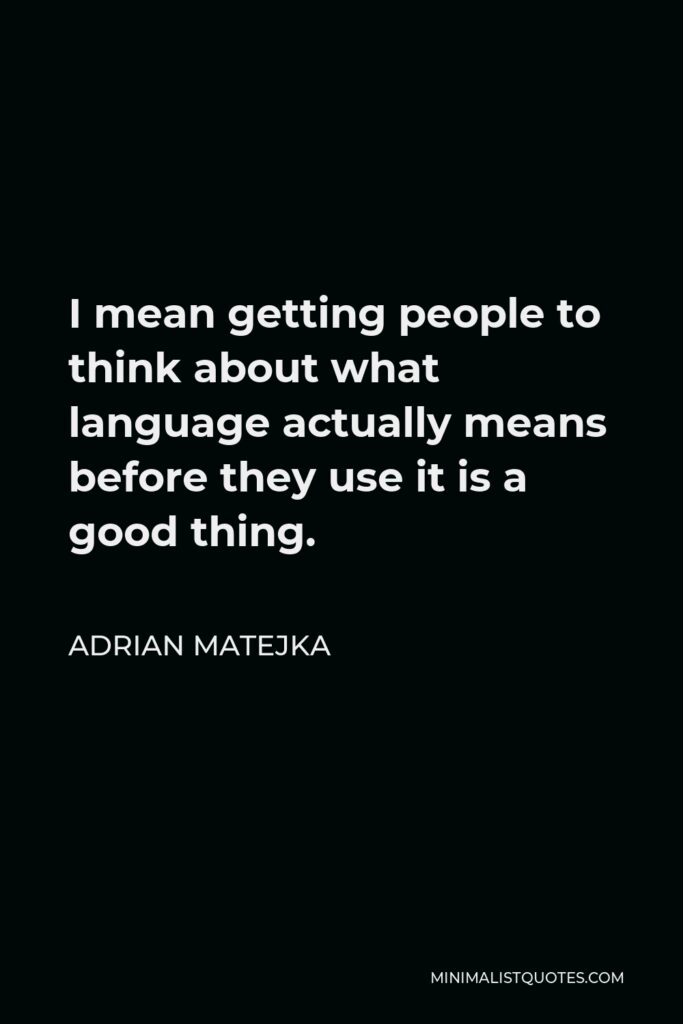

-





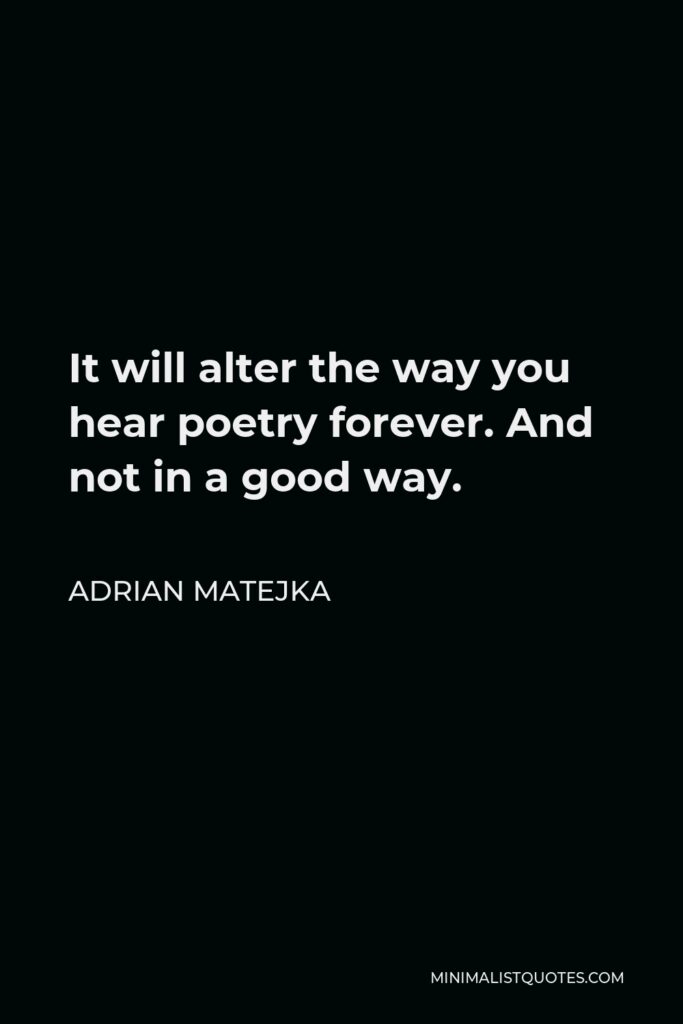

It will alter the way you hear poetry forever. And not in a good way.
ADRIAN MATEJKA -





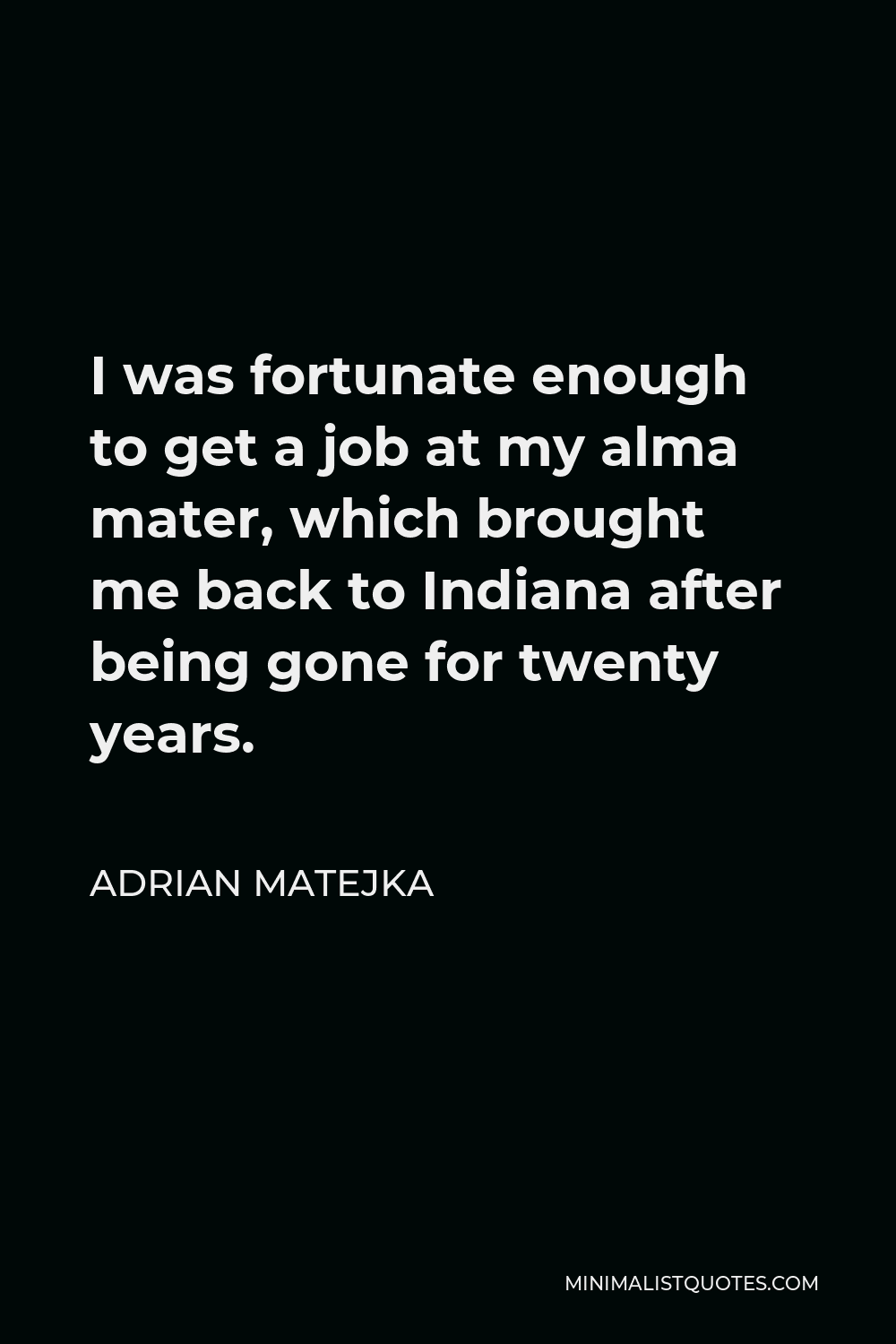
I was fortunate enough to get a job at my alma mater, which brought me back to Indiana after being gone for twenty years.
ADRIAN MATEJKA -





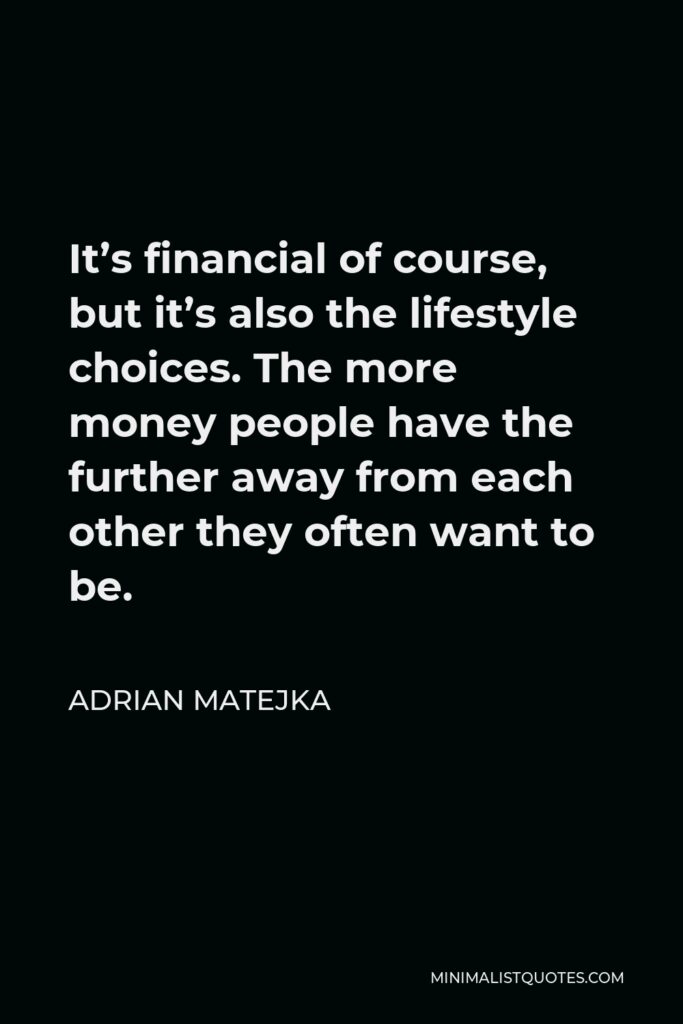

It’s financial of course, but it’s also the lifestyle choices. The more money people have the further away from each other they often want to be.
ADRIAN MATEJKA -





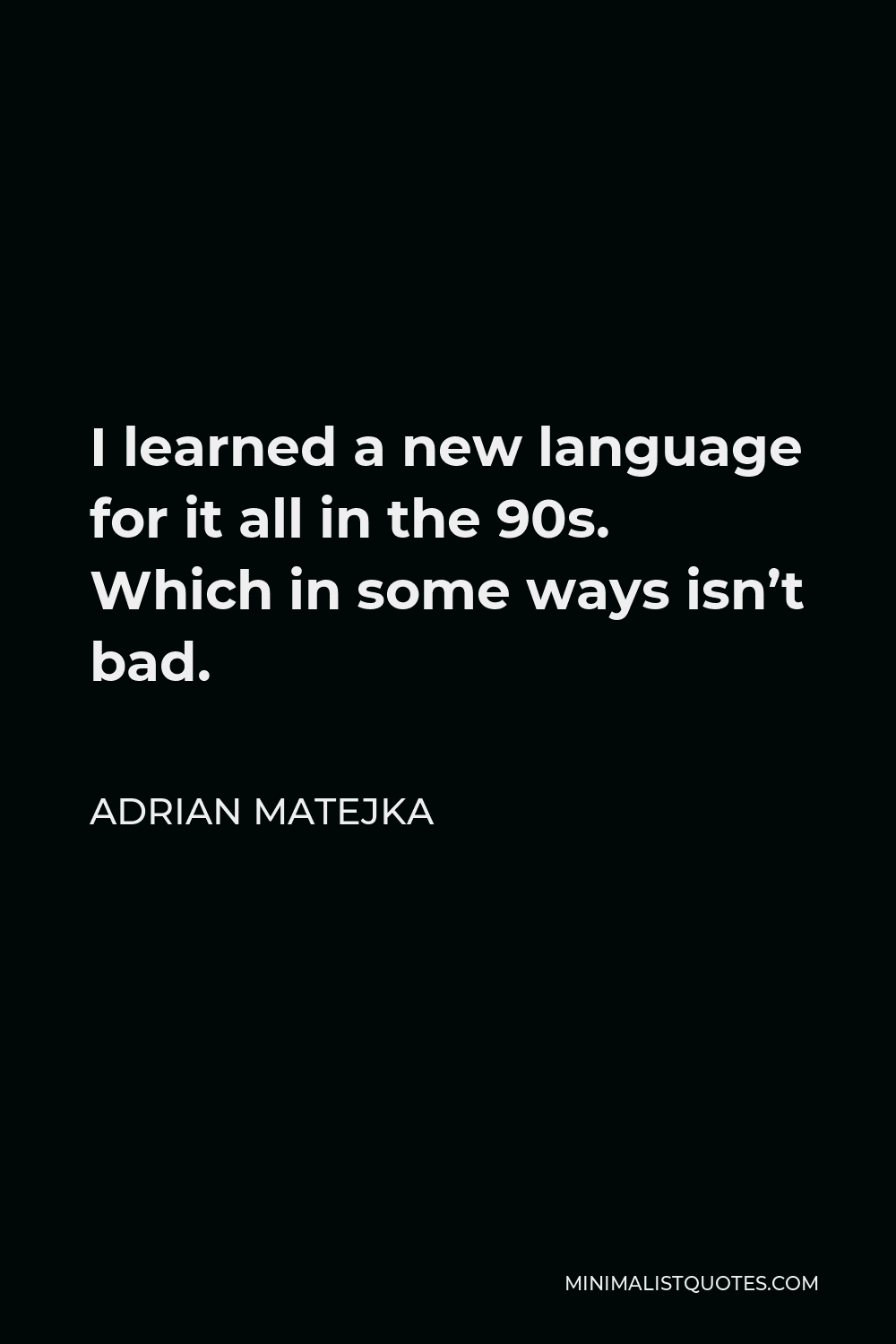
I learned a new language for it all in the 90s. Which in some ways isn’t bad.
ADRIAN MATEJKA -





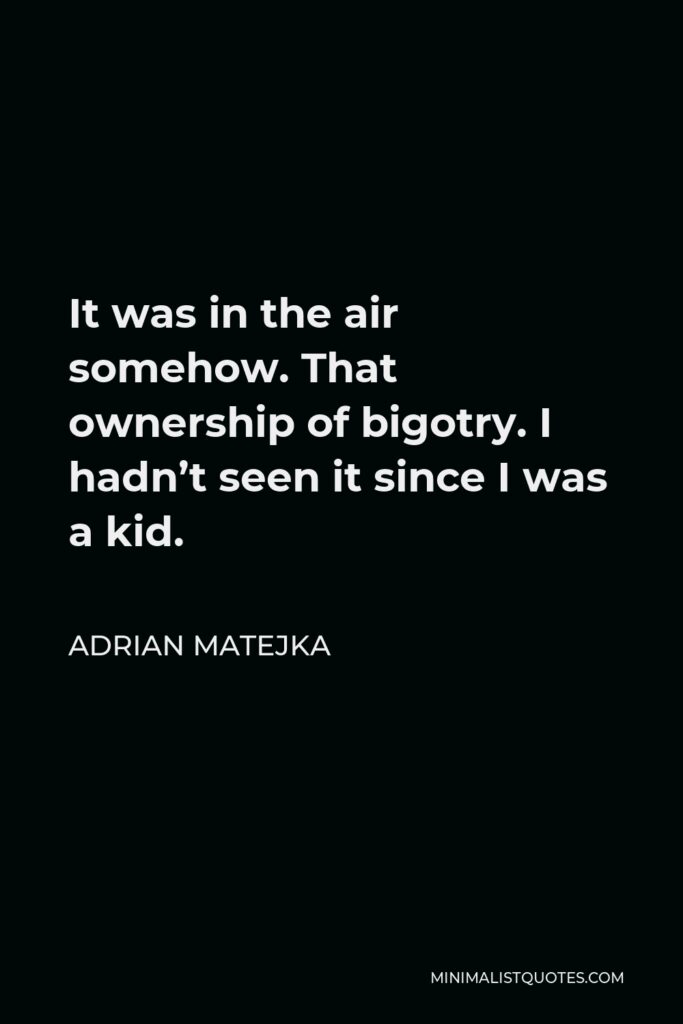

It was in the air somehow. That ownership of bigotry. I hadn’t seen it since I was a kid.
ADRIAN MATEJKA -





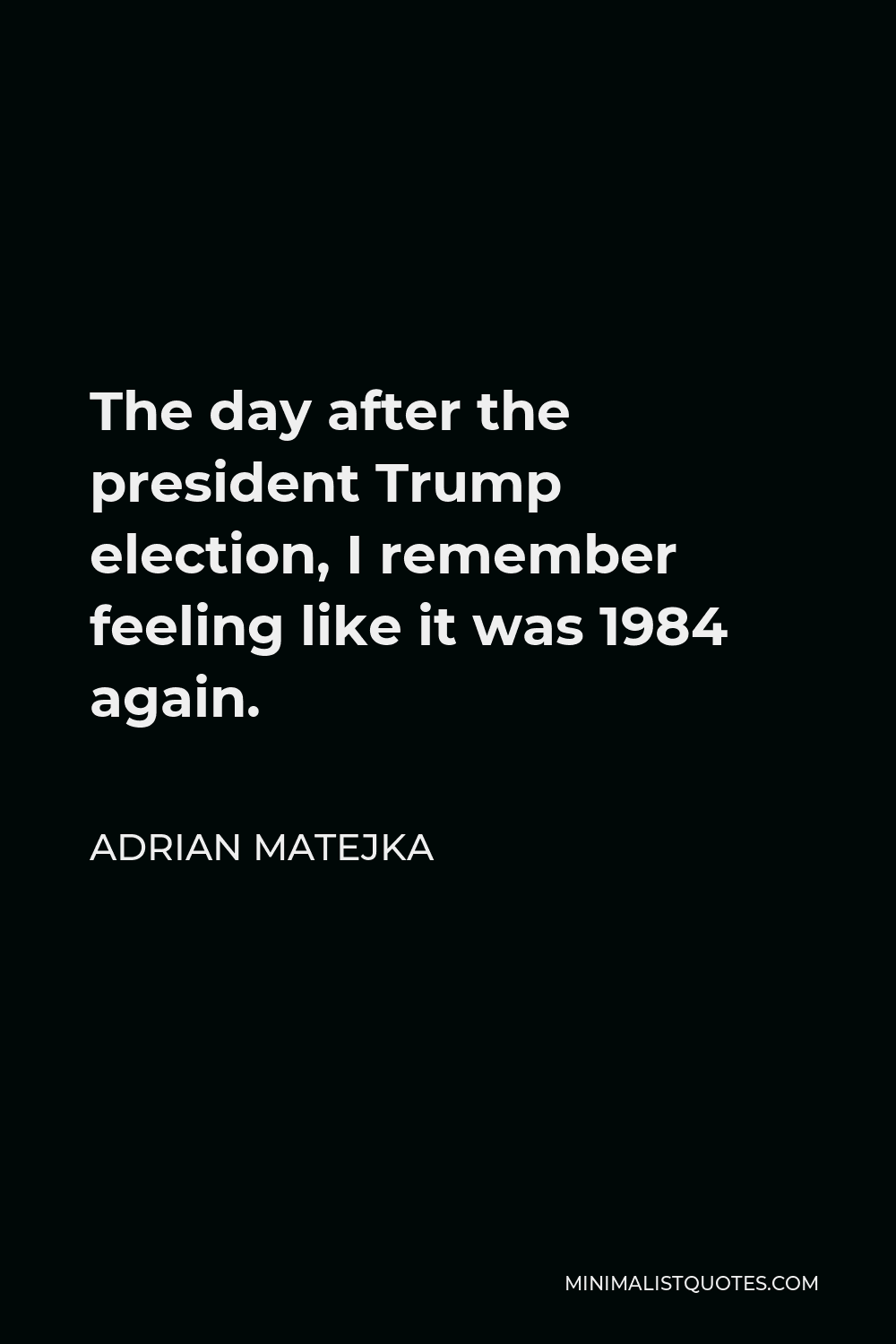
The day after the president Trump election, I remember feeling like it was 1984 again.
ADRIAN MATEJKA -





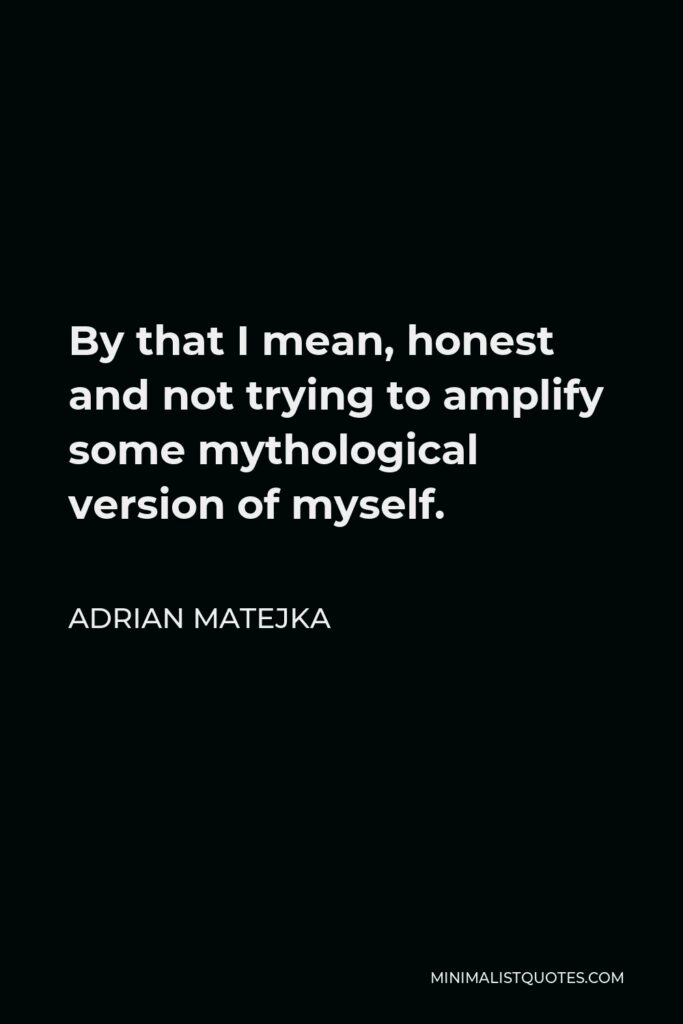

By that I mean, honest and not trying to amplify some mythological version of myself.
ADRIAN MATEJKA -





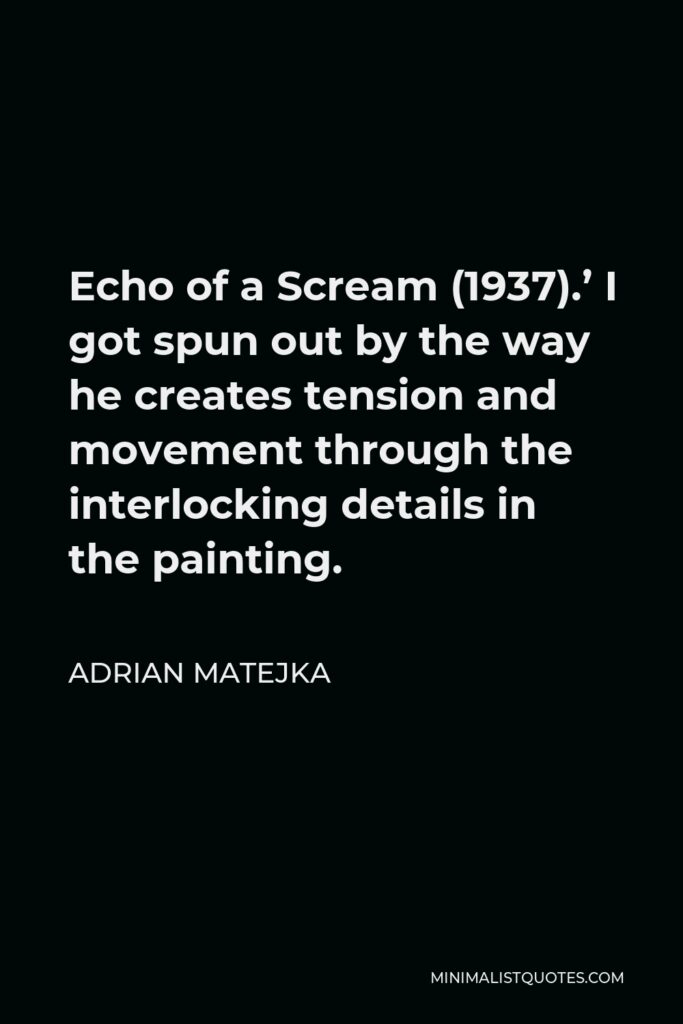

Echo of a Scream (1937).’ I got spun out by the way he creates tension and movement through the interlocking details in the painting.
ADRIAN MATEJKA -





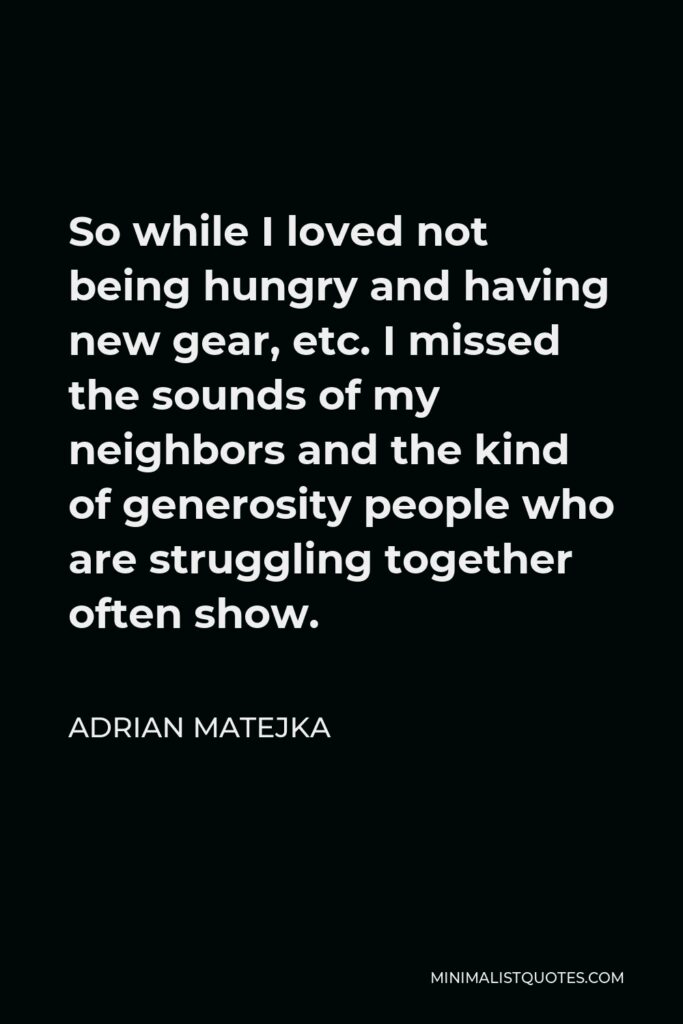

So while I loved not being hungry and having new gear, etc. I missed the sounds of my neighbors and the kind of generosity people who are struggling together often show.
ADRIAN MATEJKA -





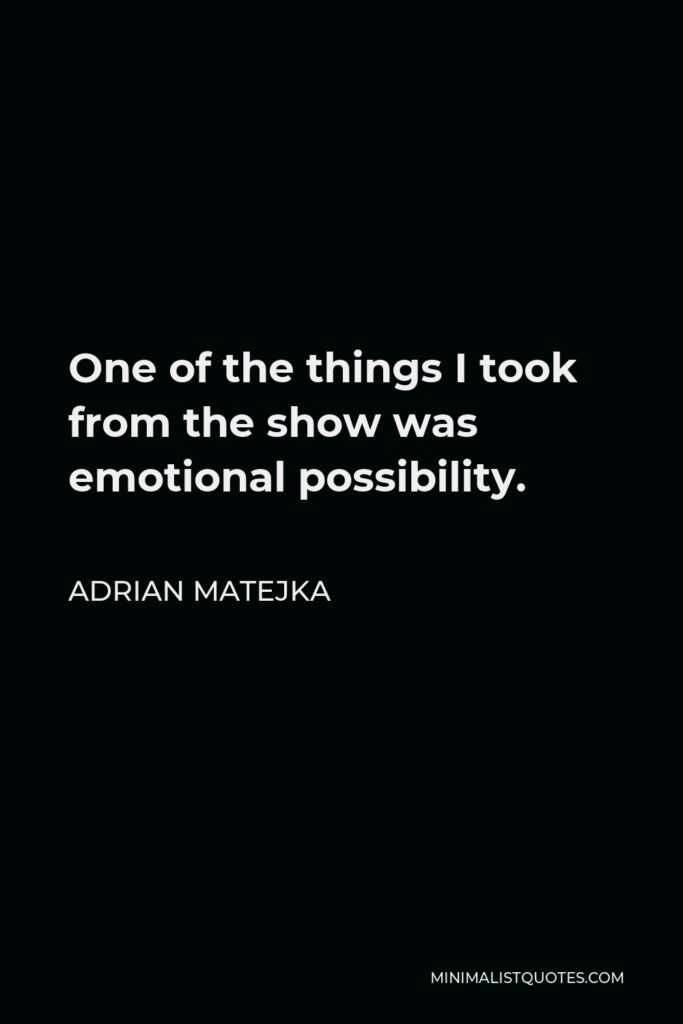

One of the things I took from the show was emotional possibility.
ADRIAN MATEJKA -





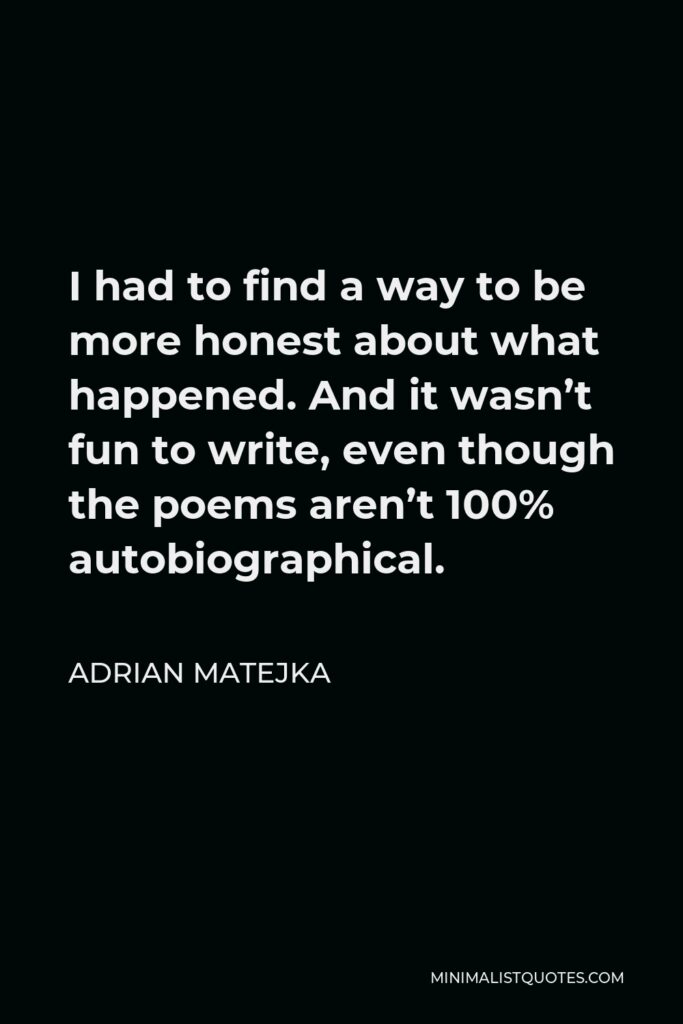

I had to find a way to be more honest about what happened. And it wasn’t fun to write, even though the poems aren’t 100% autobiographical.
ADRIAN MATEJKA -





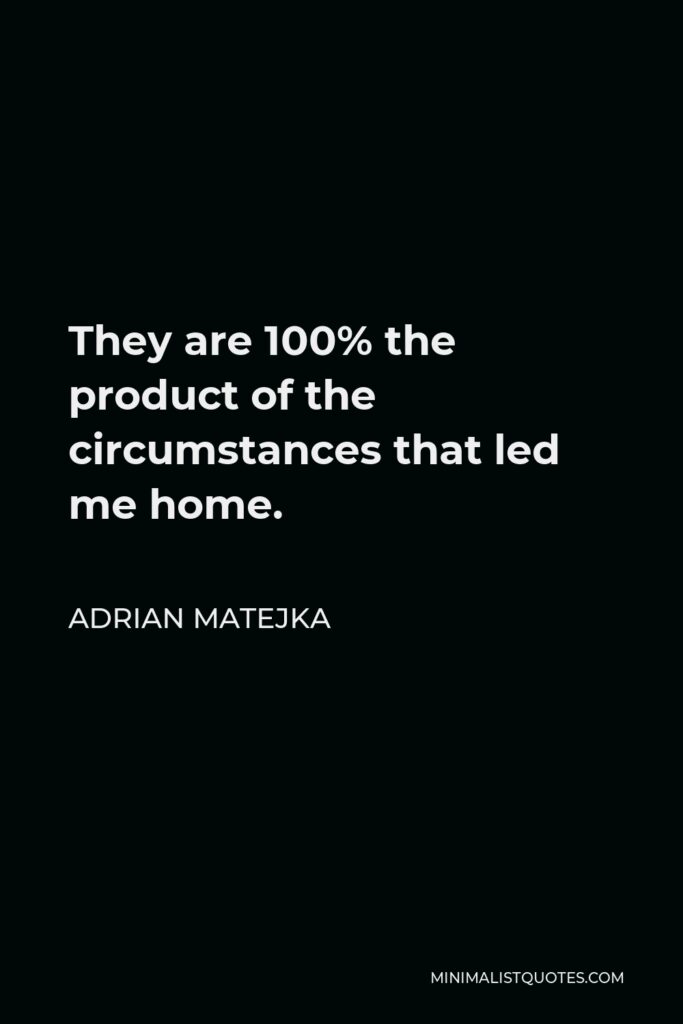

They are 100% the product of the circumstances that led me home.
ADRIAN MATEJKA -





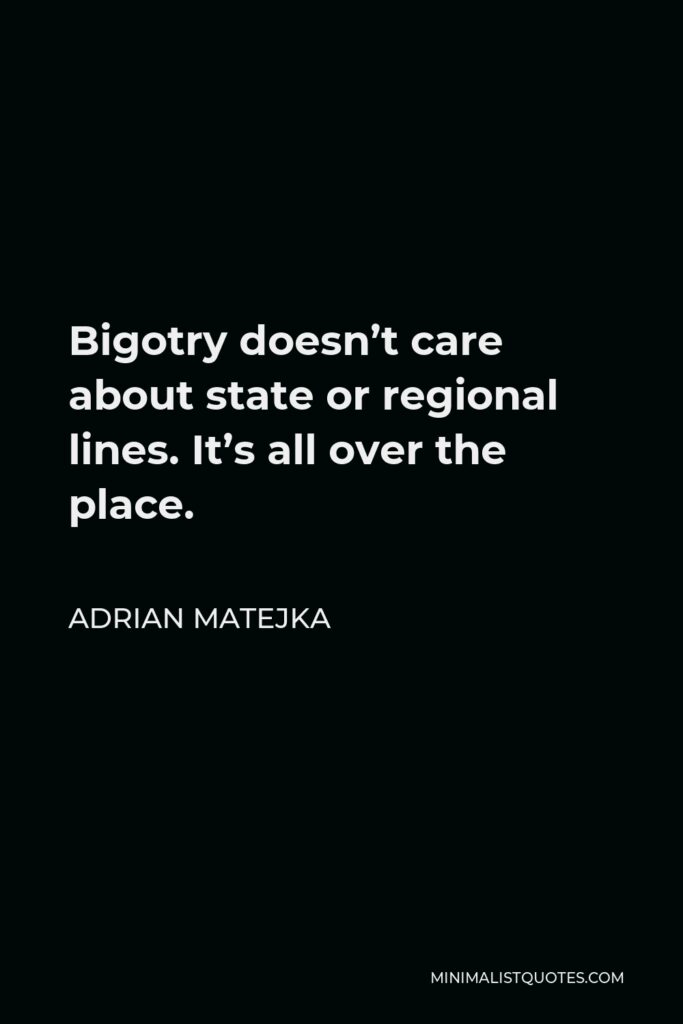

Bigotry doesn’t care about state or regional lines. It’s all over the place.
ADRIAN MATEJKA -





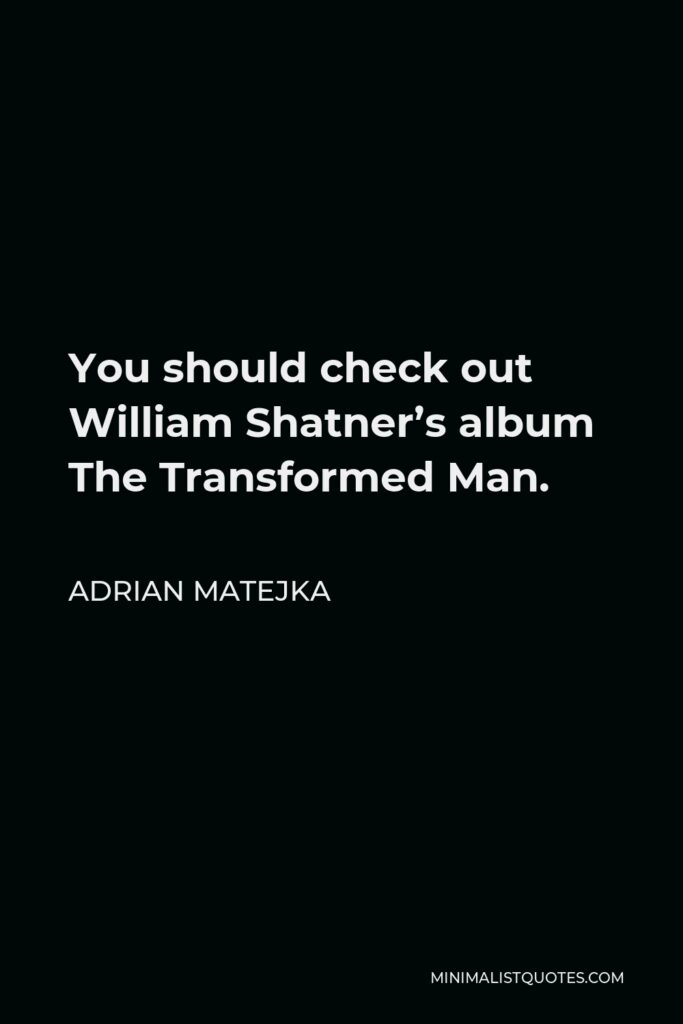

You should check out William Shatner’s album The Transformed Man.
ADRIAN MATEJKA -





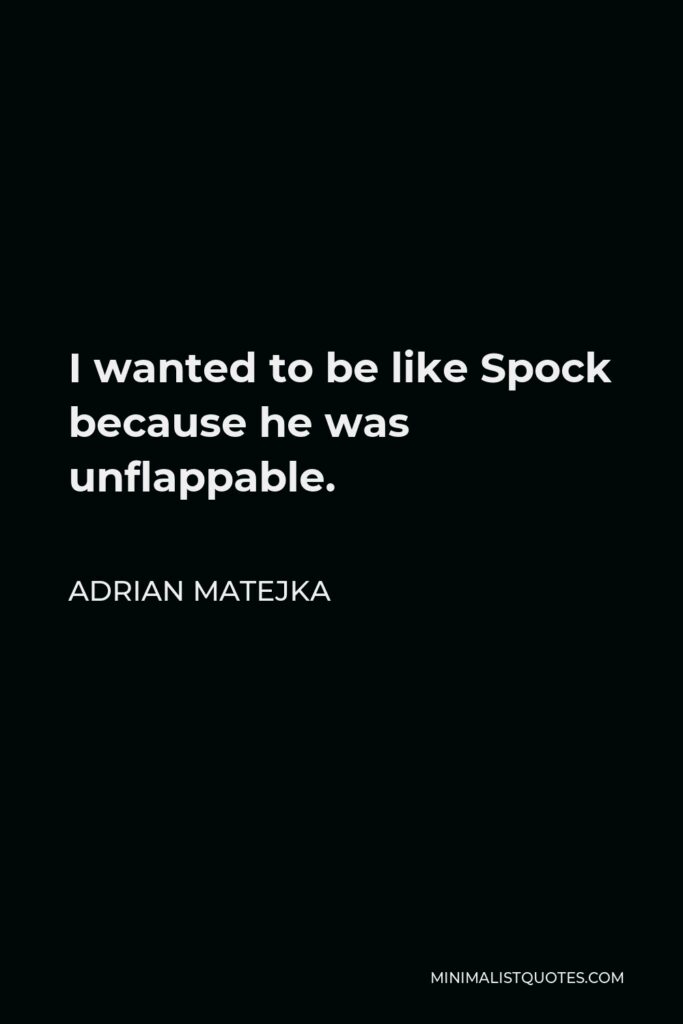

I wanted to be like Spock because he was unflappable.
ADRIAN MATEJKA
